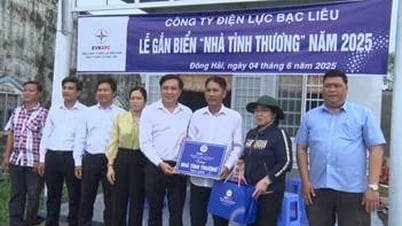(Quang Ngai Newspaper) - In order to develop and improve the operational efficiency of the collective economic sector and cooperatives, the State has had many preferential tax policies for cooperatives, especially for cooperatives operating in the fields of agriculture, forestry, fishery and salt production. Thereby, helping this economic sector to develop more and more sustainably.
 |
| Products of Son Lien Agricultural and Service Cooperative (Son Tay) are sold at SonTay mart store (Quang Ngai city). |
Many preferential policies
Among the tax support policies for the cooperative economic sector, the two most important tax policies for cooperatives are corporate income tax and value added tax (VAT). Currently, cooperatives are exempted from corporate income tax on revenues from cultivation, livestock, aquaculture, agricultural and aquatic product processing, salt production; income of cooperatives operating in the fields of agriculture, forestry, fishery, and salt production in areas with difficult socio-economic conditions or in areas with particularly difficult socio-economic conditions.
In addition, a preferential tax rate of 10% is applied throughout the operation period to the income of cooperatives operating in the fields of agriculture, forestry, fishery, and salt production not located in difficult socio-economic areas and especially difficult socio-economic areas.
Regarding VAT, the current VAT policy for cooperatives focuses on incentives in the agricultural sector, especially for unprocessed agricultural products. Specifically, agricultural products (including forest products), livestock, aquaculture, and seafood that have not been processed into other products or have only undergone normal preliminary processing by cooperatives themselves are not subject to VAT. At the same time, a tax rate of 5% is applied to cooperatives that pay VAT according to the deduction method and sell agricultural, livestock, and seafood products that have not been processed into other products or have only undergone normal preliminary processing to other entities such as households, business individuals, and other organizations and individuals.
In addition, agricultural cooperatives also enjoy incentives in terms of personal income tax, business license fees, and land rent. To support and help agricultural cooperatives in the province promptly grasp tax policies and tax incentives for agricultural cooperatives, the provincial Tax Department has recently introduced a number of legal documents regulating tax incentives for agricultural cooperatives.
Strengthening resources for cooperatives
The province currently has 235 cooperatives operating in the agricultural sector. Currently, many new cooperative models have emerged in this sector, linking with businesses and farmers in the production value chain, bringing practical benefits to the people. Agricultural cooperatives play an important role in creating jobs in rural areas, contributing to stabilizing the prices of input materials and services for production and business and developing the economic life of member households. Many cooperatives operate internal credit, supporting timely capital supply for production members, solving difficulties in daily life, eliminating black credit in rural areas, contributing to ensuring social security and implementing the national target program on new rural construction.
Director of Son Lien Agricultural and Service Cooperative (Son Tay) Pham Thi Tram shared that in recent times, in addition to the efforts of staff and members, the Cooperative has received the support and companionship of the State. In particular, preferential tax policies have supported the Cooperative in the production and business process, helping the Cooperative have more financial resources to promote investment and development.
In fact, reforms in tax and fee policies for cooperatives have become increasingly transparent and consistent with reality, and have brought about practical results. Thereby, creating conditions for cooperatives to increase financial resources, increase accumulation to promote investment in production and business development, and create jobs for workers.
Article and photos: HONG HOA
RELATED NEWS:
Source








































































































Comment (0)